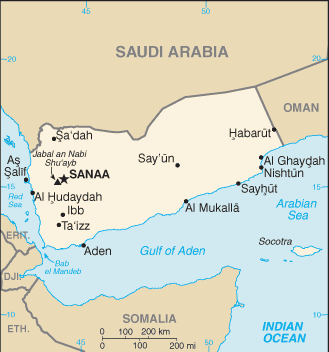The after-action review of the disastrous January raid by US Navy SEALs against a compound in a Yemeni village has sought to dispute some of the reports that came out in the wake of the incident, about how locals knew the raid was coming, saying they had no evidence this was actually the case.
 But the big lesson learned in the raid, which ended with the troops calling in airstrikes, a huge civilian death toll, and the death of one US soldier, was that al-Qaeda in the Arabian Peninsula (AQAP) forces are a lot more combat ready in general than US troops took them for, and put up a surprising amount of resistance.
But the big lesson learned in the raid, which ended with the troops calling in airstrikes, a huge civilian death toll, and the death of one US soldier, was that al-Qaeda in the Arabian Peninsula (AQAP) forces are a lot more combat ready in general than US troops took them for, and put up a surprising amount of resistance.
Even beyond the AQAP guards and other general fighters the SEALs expected to encounter were female family members, who in previous circumstances the US considered unlikely to become involved, were quick to take up arms against the raiding forces, adding to the complications.
The mission, the first of President Trump’s administration, is widely regarded as a failure, and while the White House continues to claim that intelligence was recovered during the raid, Pentagon officials have repeatedly conceded that what was recovered was largely things they already knew, and a collection of telephone numbers containing no specifically actionable intelligence.
This after-action account of the January raid comes in the context of reports that SEALs were in the process of trying to launch a second raid early this March, but aborted the operation at the last minute. There were several reports out of Yemen at the time that such an operation was taking place, but the Pentagon denied them. This apparently was not technically a lie, since the operations were aborted.


